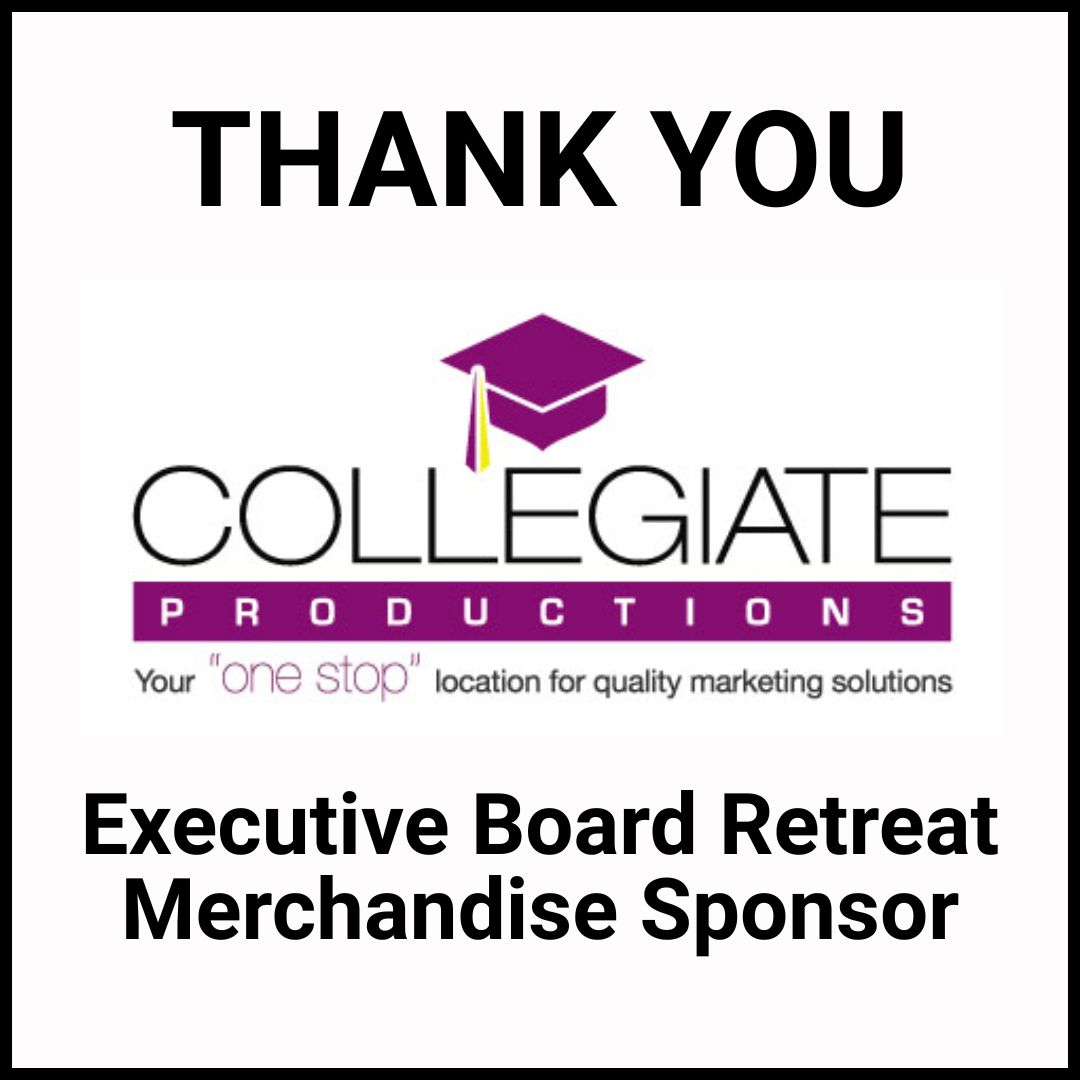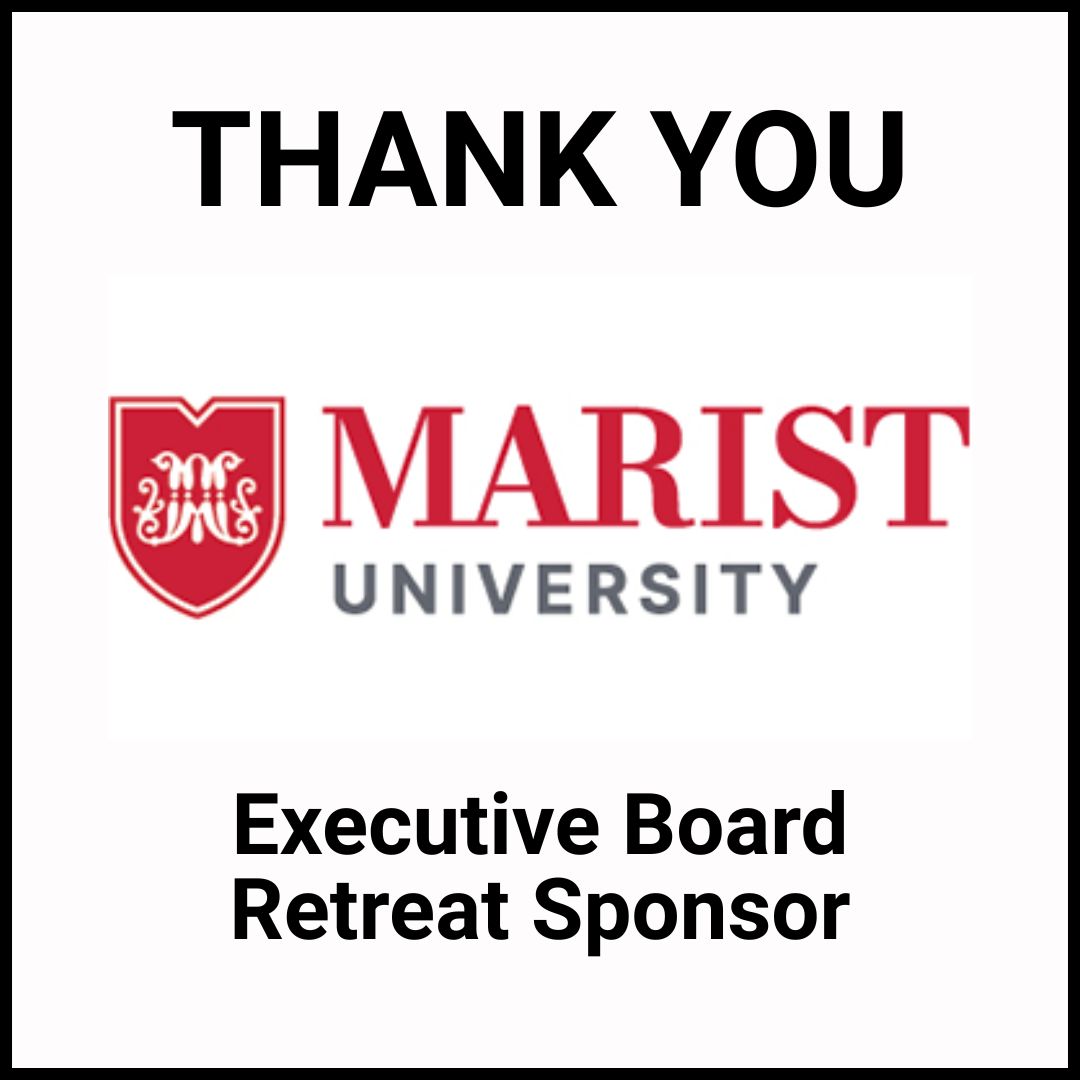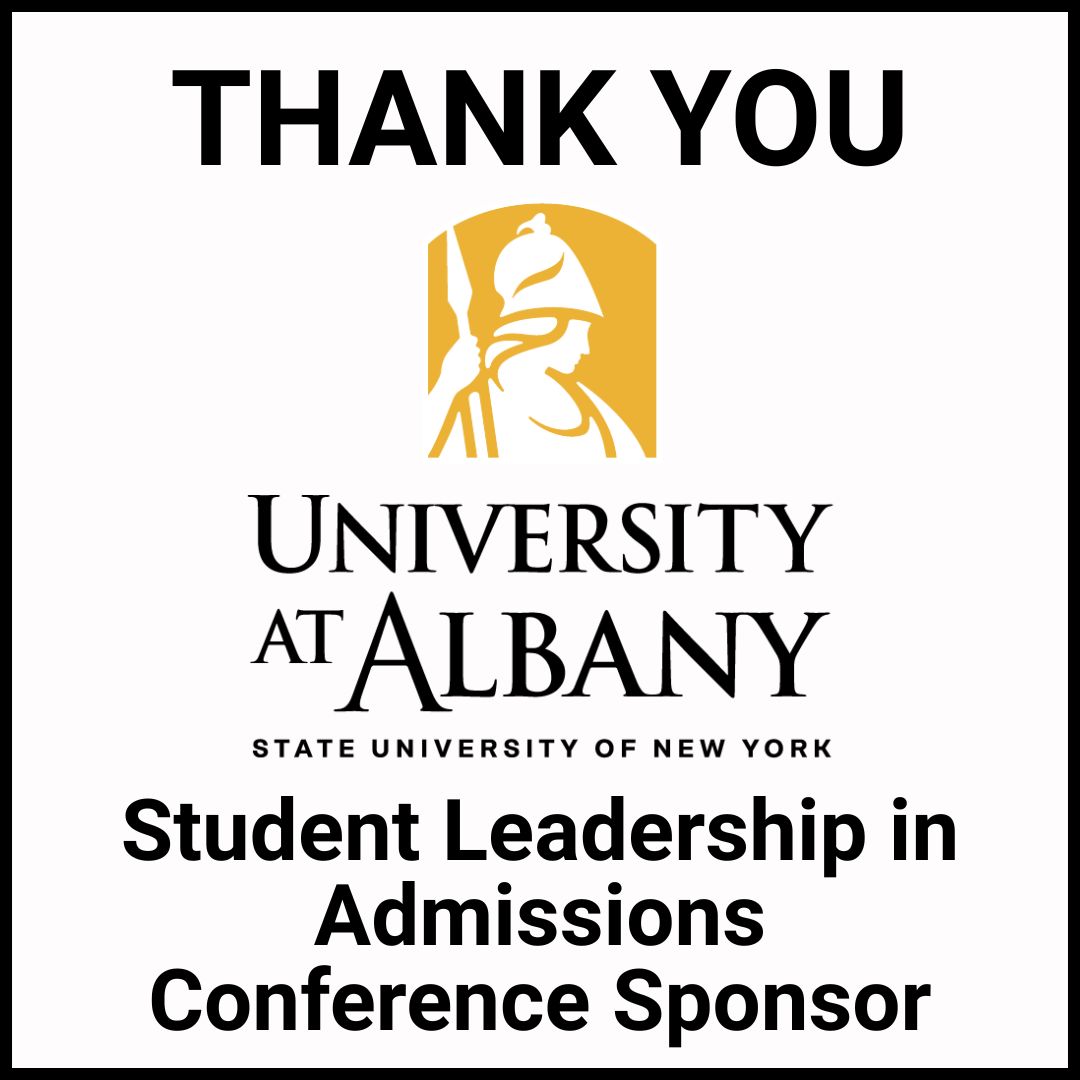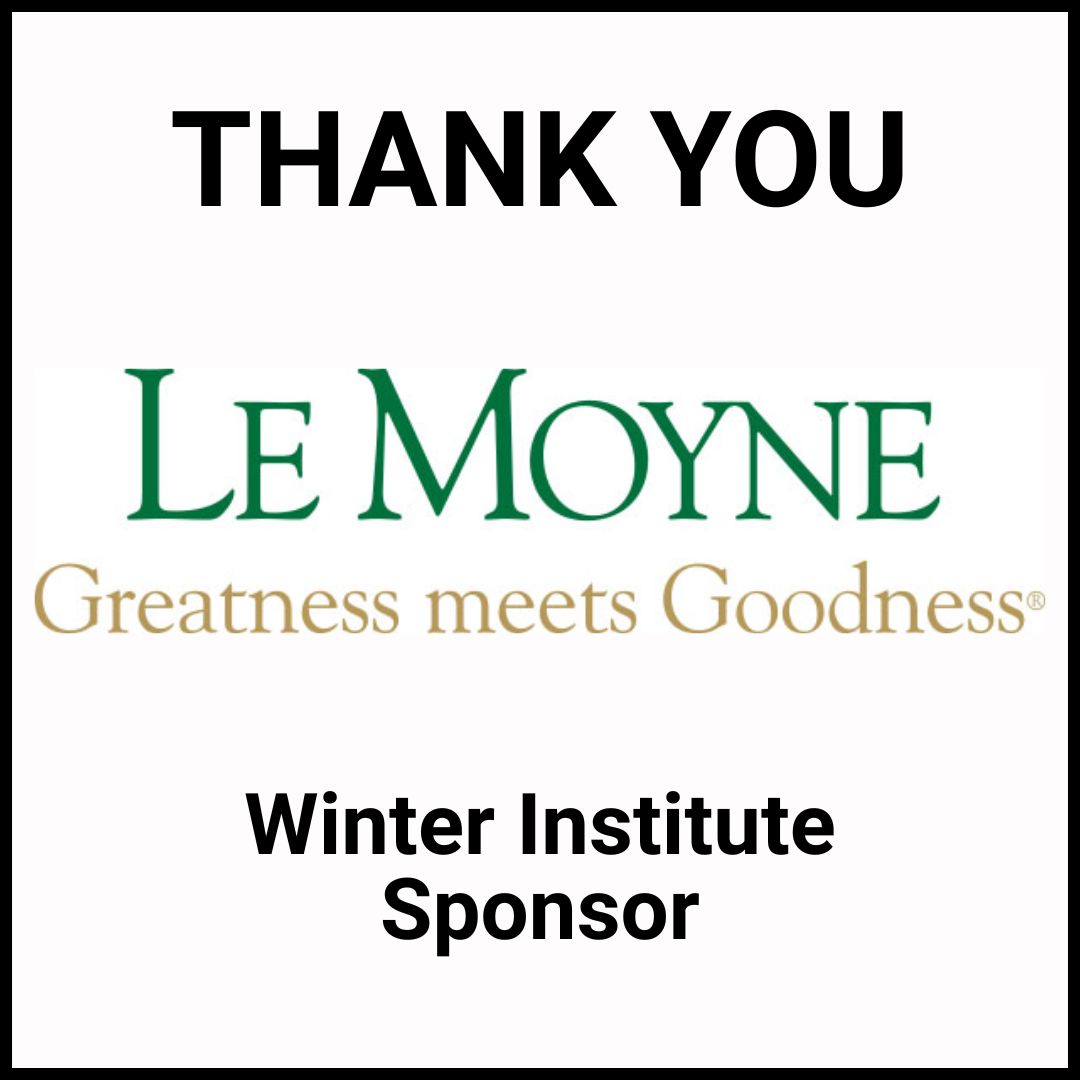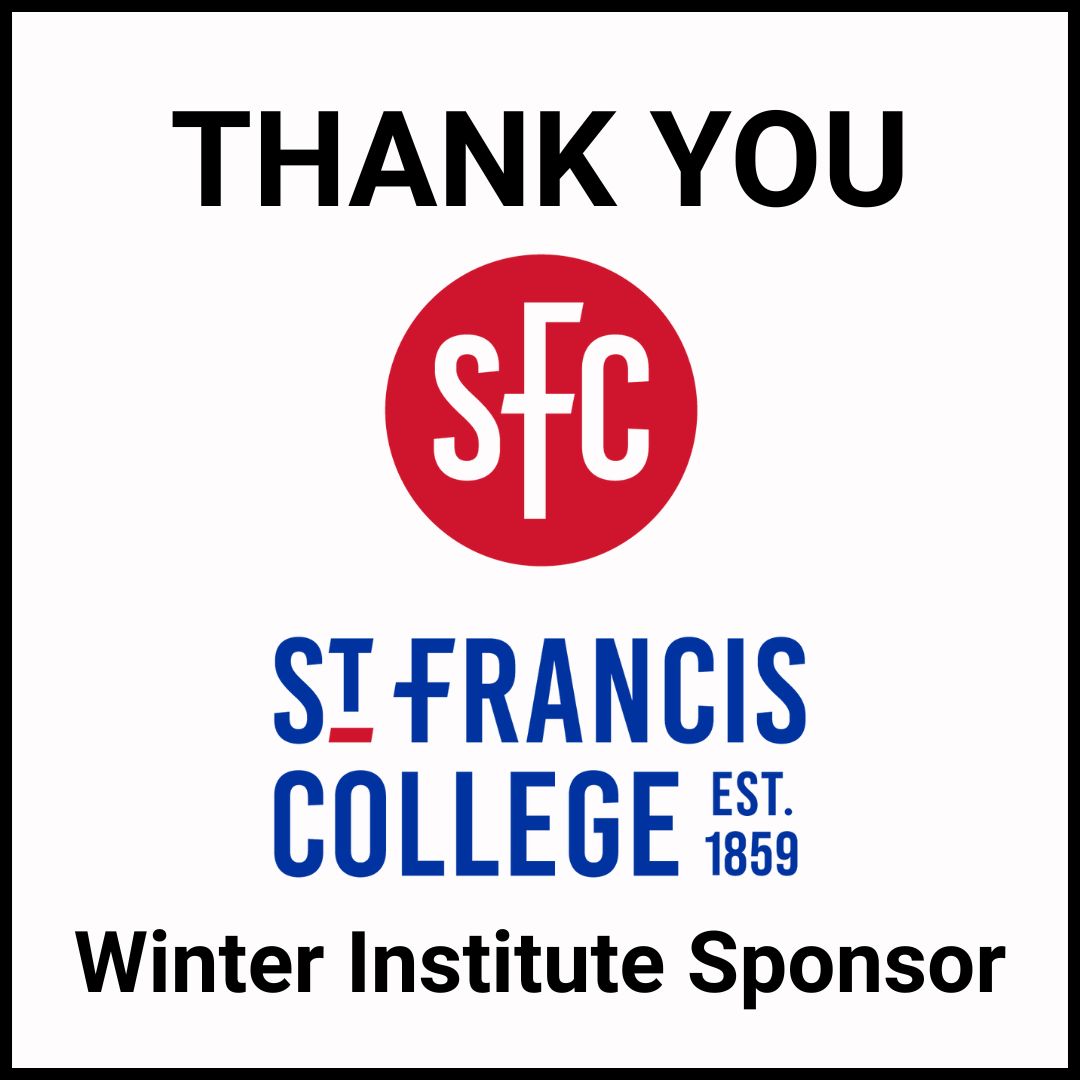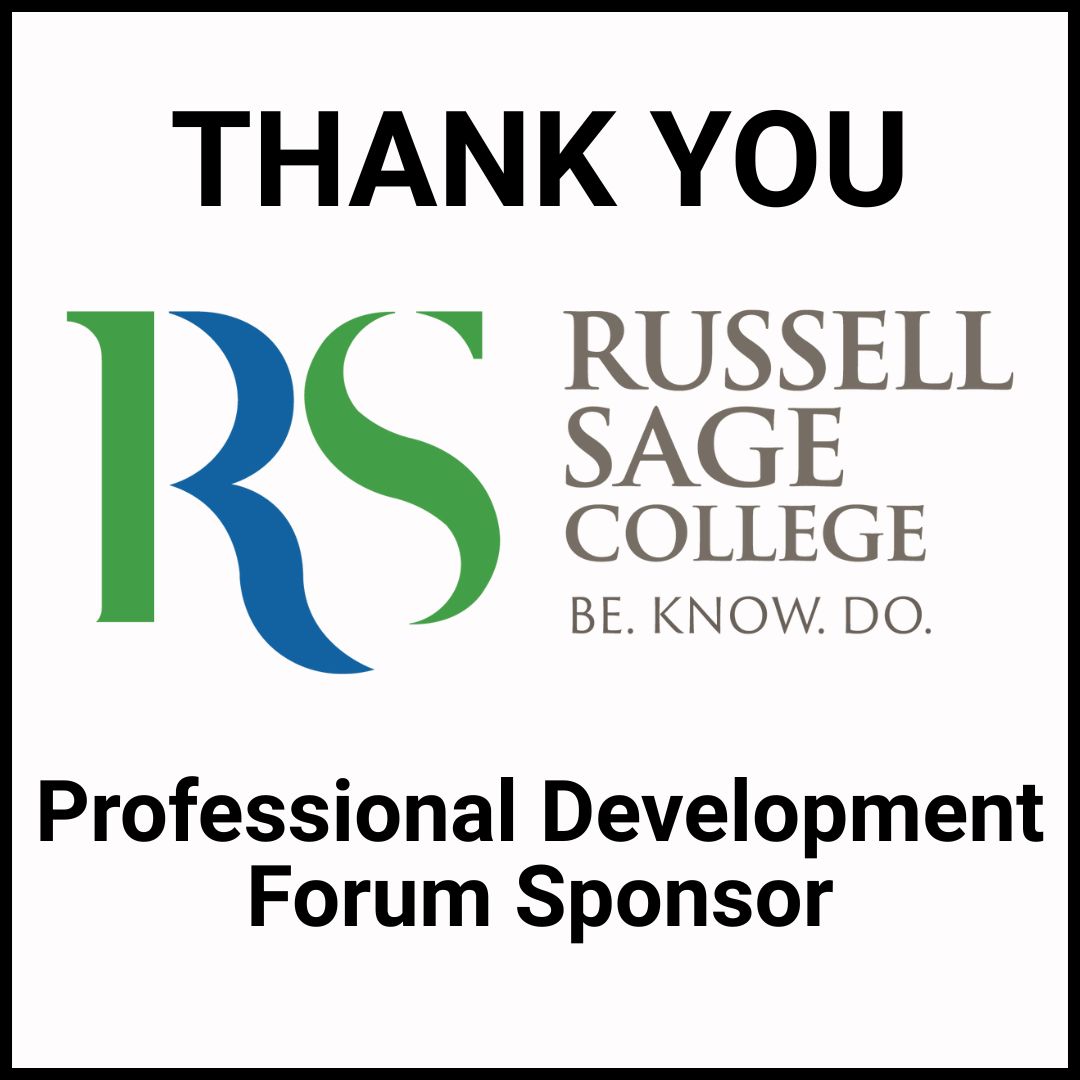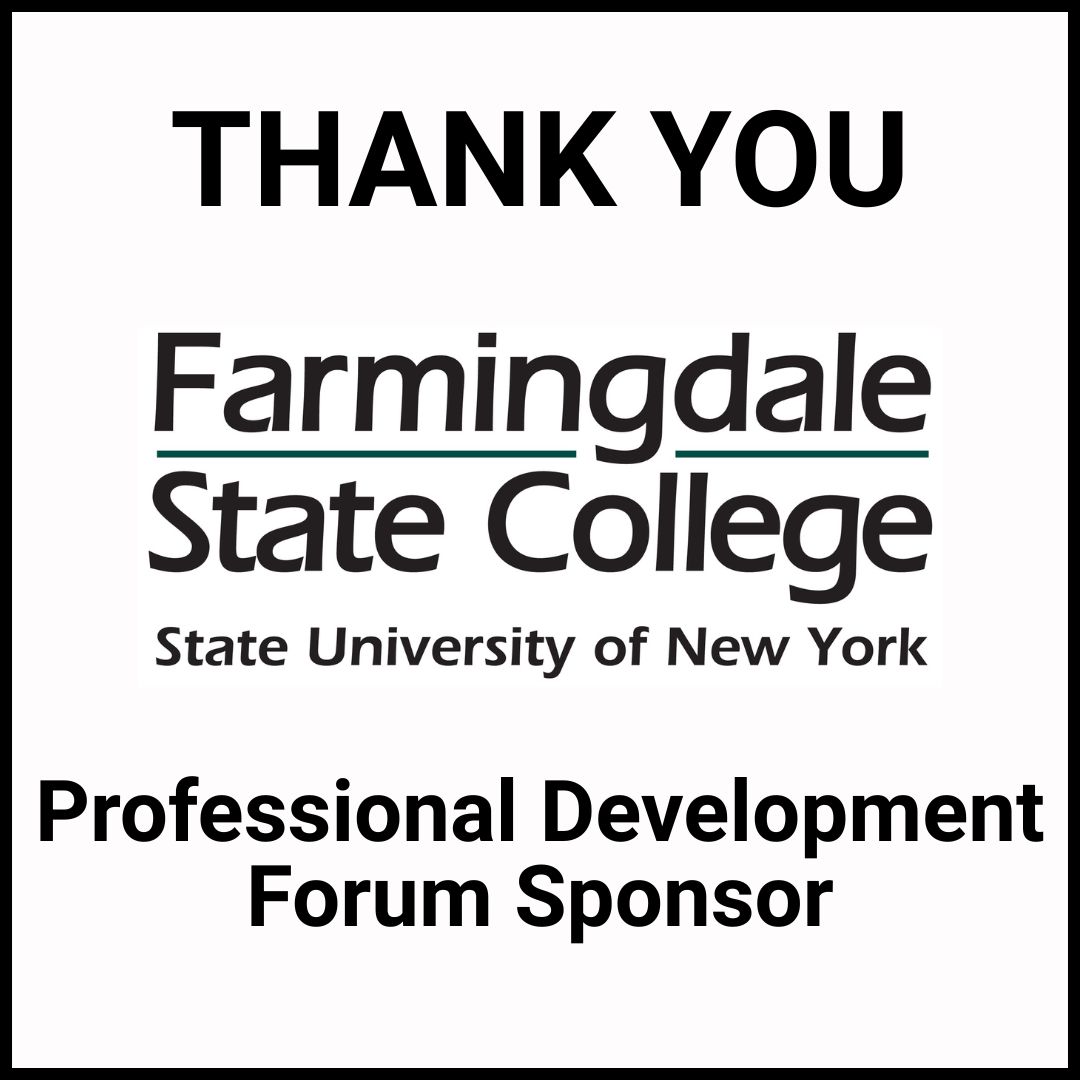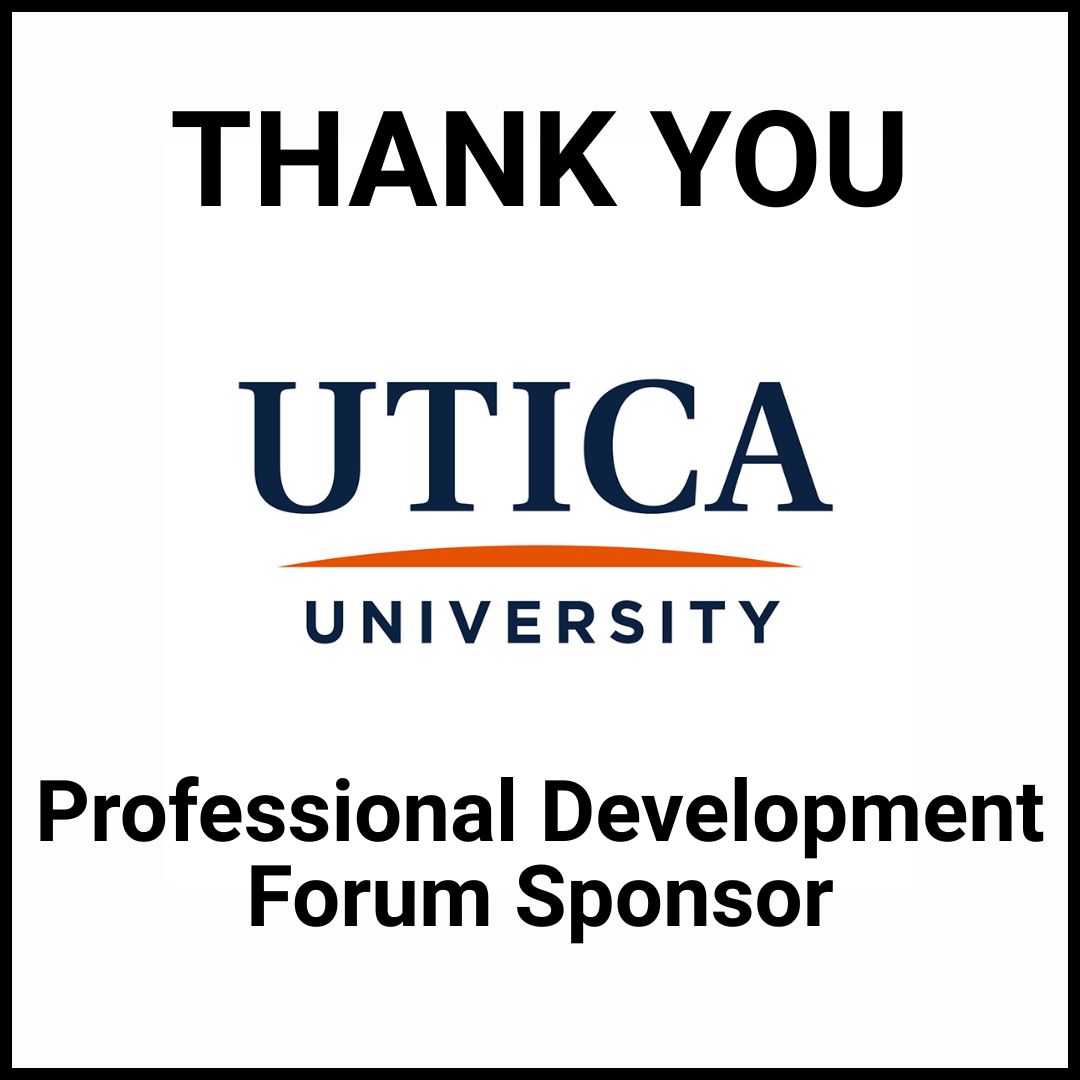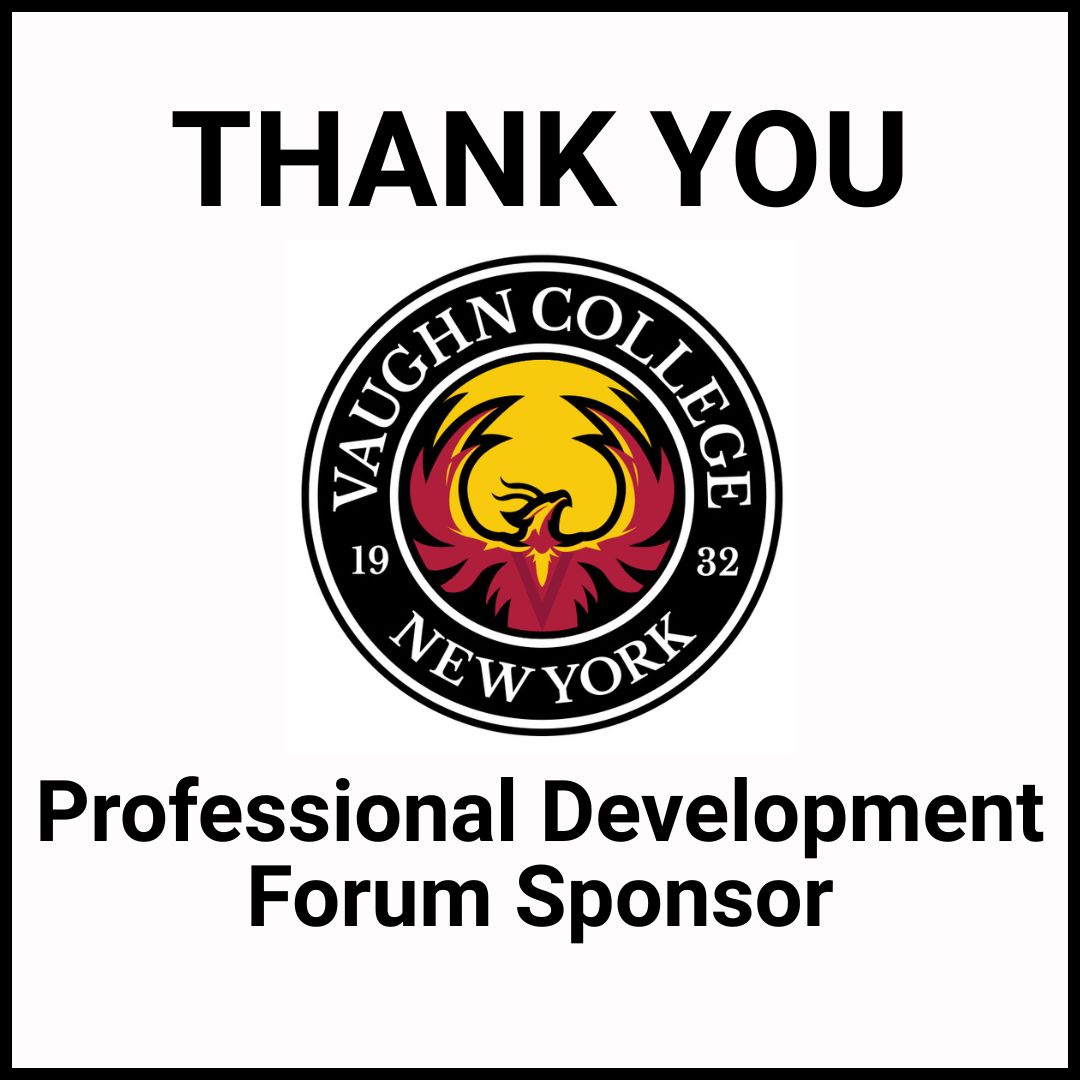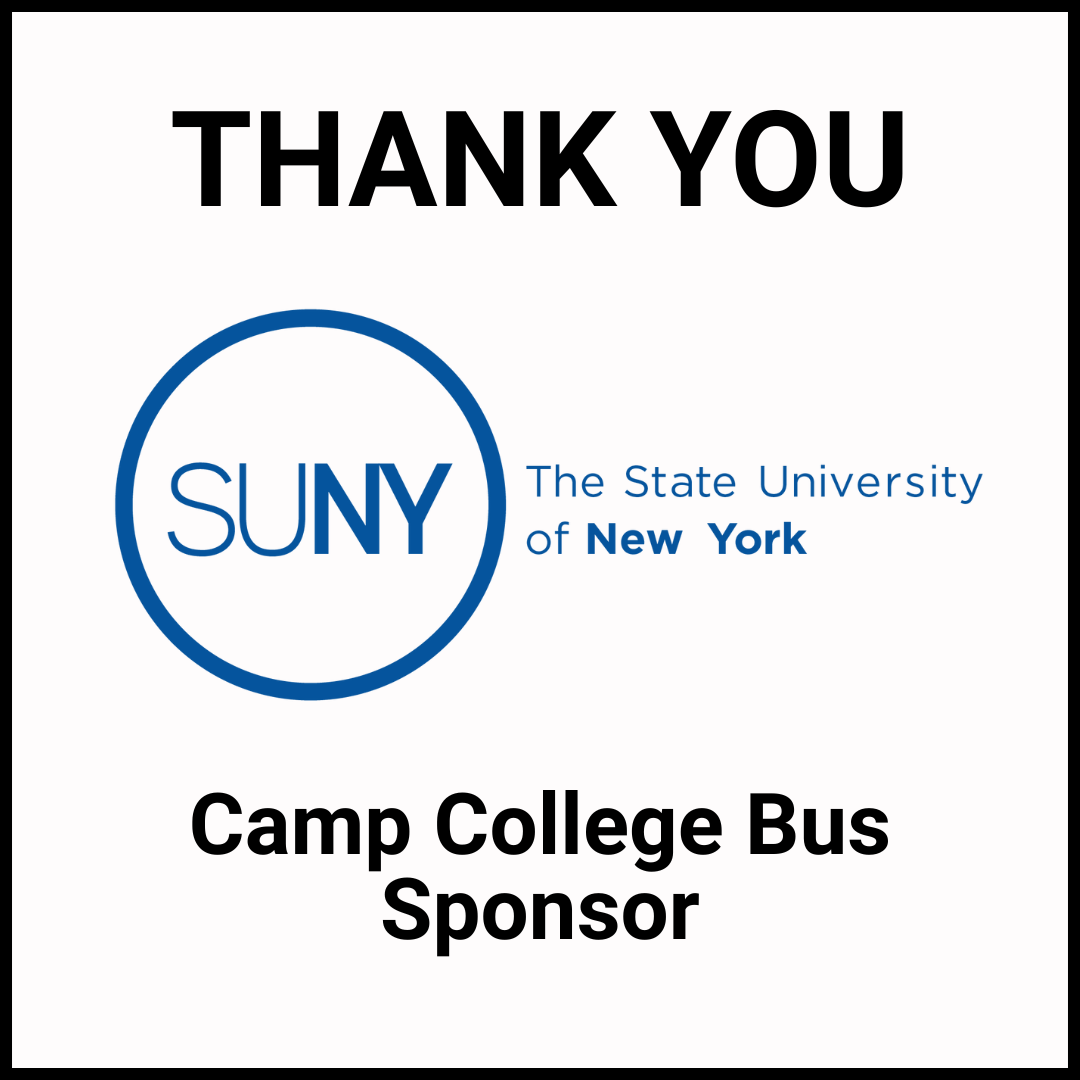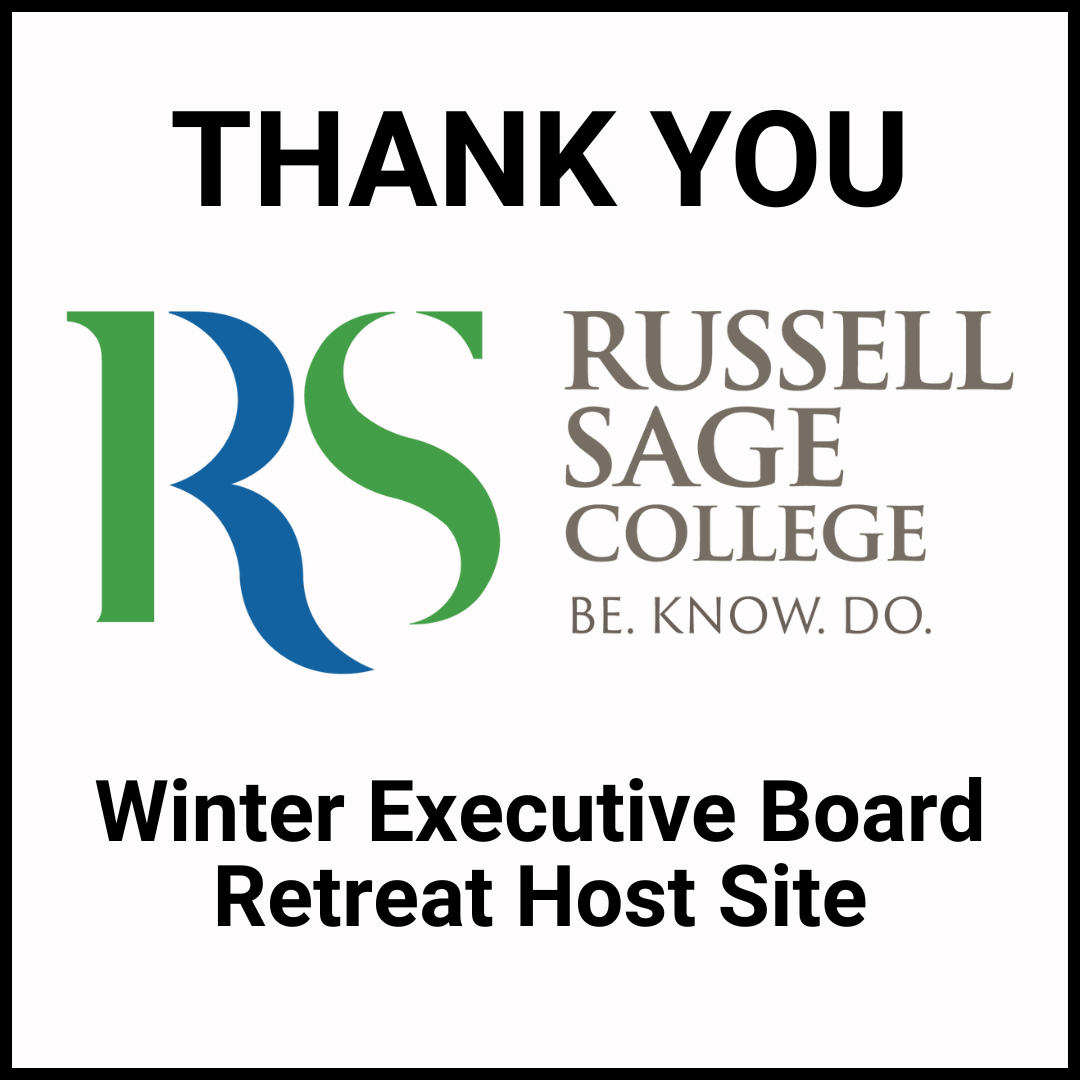- Home
- About
- News
- Government Relations
- Professional Development
- Community Outreach
- Donate
- Membership
|
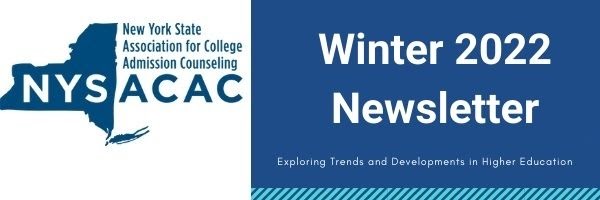 Marie Nocella (she/her), NYSACAC President Dear Colleagues, I hope you are well as we begin 2022! Thank you for taking the time to read the newsletter. Here are some updates and thoughts:
We continue to be challenged by our work and our world, making the importance of fellowship in NYSACAC vital. I am thankful for NYSACAC bringing us together to support our students and each other. Have a great winter and spring season! Warm wishes, Marie Marissa Guijarro, NYSACAC Immediate Past President and Chief Delegate Happy winter greetings, members! I hope that 2022 brings you the exquisite in the ordinary, good health, and energy for work and leisure. As you may know, the position of Immediate Past President includes roles of Nominating Committee Chair and Chief Delegate. Our nominations deadline was extended to January 21, and the ballot will be available to members in March. Winners will be announced at our Annual Conference as well as award recipients. Thank you to the Nominating Committee for their work to date! The delegates are serving during a time of transition at NACAC. Traditionally, the number of delegates was based on the number of NACAC members within the affiliate, a “House of Representatives” type of model. Since NACAC has adopted a general membership election for the Board of Director positions and any by-law changes, at the time of this writing, the role and function of the delegate is under discussion at the NACAC level. At the Affiliate Presidents’ Council meetings in Seattle, I spoke candidly about NYSACAC’s commitment to the position of delegate, especially since many of our leaders started their journey towards the president’s cycle in that position. For this election cycle, NYSACAC has chosen to retain our usual number of delegates while we wait for further instructions from NACAC. Without mandated attendance at an annual Assembly for voting purposes, our delegates continue to fulfill important responsibilities within our affiliate. Delegates serve as regional liaisons (see listing below), engage members through newsletter articles, and participate in events at the regional and state level. With change, there is opportunity. In the meantime, we are waiting to hear the findings of the NACAC Ad Hoc committee on Reimaging the NACAC-Affiliate Partnership, and hopefully there will be news to share at our Annual Conference. NYSACAC Regions and Delegates for 2021-2022 Western NY: Annemarie Cervoni and Sheryl Kavanagh Southern Tier: Angela Herrera-Canfield and Lisa Searle Finger Lakes: Erica Padilla Central New York: Emmanuel (Manny) Cruz Mohawk Valley: Chris Doyle North Country: Mark Mason and Danielle (Danny) Robinson Capital Region: Darnell Douglas and Abbey Massoud-Tastor Mid-Hudson: Chris Doyle, Marissa Guijarro, Marie Nocella Five Boroughs of NYC: Kory McBride and Zee Santiago Long Island: Dave Follick and Bryan Rothstein To facilitate communication and collaborative work, the delegates and I have been meeting a few weeks prior to each Executive Board meeting. For the winter, one of our tasks is to review the feedback from the member survey regarding needs and priorities. We plan to hone in on universal as well as regionally-based needs and priorities, and then tap into our networks to provide information, resources, and support as appropriate to help our members serve their students. Your input helps our association to plan relevant professional development as part of your member benefits. Please reach out to us if you have any regional or other concerns at [email protected] Have a wonderful winter, be well, and I hope to see you in June at the conference! How Will College Admissions Offices Know About COVID's Impact On Our Students? Jeffrey C. Makris, Director of College Counseling, Stuyvesant High School After getting my COVID booster shot I sat in my local CVS eyeballing the discounted Halloween decorations. The Christmas stuff just seems to be in your face earlier and earlier each year. ‘Tis it really “the season” the instantHalloween is over? But then I thought about my first COVID shot. That was harder than stomaching premature Yuletide décor…hours to find an appointment, creative parking, and three hours in line before I had that precious needle in my arm. Today was easy; I was in and out in 25 minutes. It reminded me how far we have come since March of 2020. Last year, under 10% of our students attended school within our building. This year, we’ve had 3500 people in our building every day for full time, in–person classroom instruction. Even with the recent Omicron surge, NYC DOE schools have remained open for in-person instruction, at least as of early January. While it is hard to predict with certainty what the next few months will bring, there is some reason for optimism about the possibility of a future where COVID no longer dominates our lives. As we all know too well, our students endured incredible challenges since the onset of the pandemic. Many still are. These obstacles often have significant implications for the college admissions process, and we have needed to find ways to make sure to communicate to admissions offices the kinds of difficulties our students have faced, and how their entire high school experience was disrupted. Having a high school profile that clearly describes the major ways in which your school community was impacted is paramount. How many students were learning in person versus remote? What did in-person learning look like during the pandemic? How did your course availability or grading systems change? What are some of the common hardships experienced by students and their families in your school community and/or their neighborhoods (other than those we all faced)? We articulate all of this on the first page of our high school profile, which is now a separate COVID update page. Teacher and counselor recommendation letters should focus on the individual student. In every counselor letter, we include a sentence at the top of the page with an embedded hyperlink directing readers to our website, which includes that same COVID update page from our profile. This makes it easy for admission representatives to find this information in case they otherwise miss our profile, and our teachers and counselors don’t need to address those school-wide issues. Instead they have room to address if a student was uniquely affected by the pandemic, information which is critical for admission officers if they are to understand the contextual factors that might have bearing on that specific student’s application. You may find the need to advocate for individual students who were heavily impacted by COVID. While the counselor letter is still the best place to advocate, and the pandemic has made face-to-face contact with your admissions representatives feel like a thing of the past, remember that they are still just a Zoom link away. Don’t be afraid to reach out to them when one of your students is facing a major new challenge, whether that be related to the pandemic or not, as this context may help admissions readers evaluate students more fairly. If and when you do speak with your admissions representatives, remember that they have so many applications to read, from so many high schools. It may help to quickly remind them about the most significant ways in which your students were affected by the pandemic. Let’s hope that 2022 involves much less COVID talk. In the meantime, best of luck with the start of the New Year. And, mark your calendars…it’s never too early to start thinking about the NYSACAC conference in June! Lisa Searle, Vice President for Professional Development With the calendar turning to 2022, there was no better time than early January for Winter Institute, a program specifically designed for new professionals in college counseling, enrollment management, college access and student success. Originally planned as a hybrid event at Cornell University (January 7th) and Syracuse University’s Lubin House (January 14th), the Winter Institute quickly adjusted its format and hosted two robust days of virtual programming for our industry’s newest members. Over 60 participants were engaged in thoughtful conversation that focused on making the most of a virtual or in-person high school visit, NACAC best-practices, Diversity, Equity, and Inclusion in higher education, and mental health and wellness for new professionals. While we were unable to host the Winter Institute program in person, we remain thankful to the Winter Institute planning committee, all of the presenters, and especially our hosts from Cornell University and Syracuse University. Even though we couldn't meet in-person, attendees of both the Winter and Summer Institutes should be on the lookout for an invitation to connect at this summer’s Annual Conference at Utica College for a networking event and class photo. We can't wait for continued connection and fellowship! Are you interested in presenting at or attending the 2023 Winter Institute? Contact [email protected]. Scholarship Spotlight: - Cristian Meza Meylin Andares & Lorrie Director, NYSACAC Scholarship Committee
"My name is Cristian Meza and I am 22 years old. I am a freshman at NYC College of Technology majoring in Entertainment Technology. My dream is to make music my full-time job, whether that be as a producer, a lyricist, or being on stage myself. One year ago, I would have never thought I would be finishing my first semester of college, let alone accepting a scholarship. This has been a very transforming year for me, and the money for this scholarship will help out a lot with being able to pay my tuition for years to come. I am extremely grateful for being a recipient of the NYSACAC Scholarship, and for them believing in me to go out and reach my goals."
Please join us in congratulating Cristian. We wish you success!
Delegate Updates from Western New York Sheryl Kavanagh, Grand Island High School and Annemarie Cervoni, Orchard Park High School We are lucky to be high school counselors in the Western New York area and are honored to serve as NYSACAC delegates for our region. Besides having Josh Allen and Stefon Diggs to watch almost every Sunday from September through January, we have a lot to be thankful for! As WNY high school counselors, we enjoy the benefits of our membership to the High School Counselor Association of WNY. Hopefully, if you are a school counselor, you participate in your area’s local organization. Every month we attend professional development meetings focusing on a variety of topics such as college admissions, career planning, mental health, and/or current issues in the educational world. Additionally, each year we partner with NYSACAC to host a NYSACAC Professional Development Forum in our area. For our December meeting, there was a panel discussion at Buffalo State College on the major shortage of teachers. As you know, there is a teacher shortage across the United States and New York is one of the top 10 states with major shortages. Participating in meetings like this is critical to keeping you up to date on issues in your local area but also to hear updates from your NYSACAC delegates on statewide matters. Many of our WNY colleagues are NYSACAC members, serve on the Executive Board, and serve on various committees. We highly encourage our local colleagues, as well as those across the state to get involved. As active members, NYSACAC has provided us with opportunities for networking with colleagues on both sides of the desk, for discussing larger issues that get lost in the everyday of our work, for re-energizing and innovation based on shared best practices, and for having the same conversations across NYS. If you have questions on how to get involved please make sure to contact us! What Are Students Looking for in Higher Ed Right Now? Elizabeth England, Owner,EE College Coach I almost wrote post-pandemic instead of right now in the headline, which may be the elephant in the room in terms of my work as an off-site counselor and essay-coach during this application cycle. This subtle shift in how we label the present is indicative of how my current roster of students feels: they want the pandemic to be in the rear-view mirror and yet…it’s just not. No matter how many vaccines or boosters or PCR tests or rapid tests or at-home tests we collectively take or how many masks we layer on or how much hand sanitizer we invest in, students are highly aware that a new Covid variant may shut down campuses and/or return their high school classes to Zoom. This possibility has created a “new normal” and with any adjustment to a routine or lifestyle there can come anxiety, especially during the period of adaptation. Students are adapting to their “new normal” and in turn are experiencing more mental health diagnoses than pre-pandemic. So now what? My advice to my cohort is to focus on the here-and now. I ask them: What are you seeking in a college at this moment? The answers obviously vary, depending on whether their career track is in the performing arts or they’ve been recruited as a college athlete. However when evaluating their higher education choices, most of the students I counsel are focusing on these four factors: Mental Health Support -- Before Covid, no student or family asked me to research university mental health support systems. Now, it’s normative. Within my current line-up of high schoolers, only a couple aren’t prescribed mental health medicines; this is unprecedented. The excitement and enthusiasm of going away to college is huge and the work entailed to getting on that campus is enormous. It’s not surprising that the uneasy emotions flowing alongside the positive surge can threaten to derail a student. Ensuring that whatever the fall-out of the college application journey may be is very much on the minds of both students and their families. Flexibility of Curriculums -- I’m seeing an uptick of students who want an academic-creative duality in their college experience. Whether it’s computer science and art history (very popular combo) or history and photography (another popular pairing), this desire to appease both the intellectual and artistic aspects of their personality is very important. Social Life -- Even my most introverted students want a campus that’s lively. While they may not participate in party culture, these students want to know there are opportunities at their college for non-academic engagement with peers. Similarly, my highly social students -- those who tell me at our first meeting that they want to apply to only “spirit schools” -- are craving a college experience rife with occasions to hang out with friends. Location -- While some of my students want to remain near home, others want to venture as far away as possible. Perhaps they envision a life away from the pandemic where they can start over in a place untainted by what they endured over the last two years. Others tell me that they’re seeking a school a few hours away from home to fly back to the nest as swiftly as possible should a lockdown occur. These are the four aspects that rose to the top when contemplating the shift in college guidance. I highlight other trends and offer tips in my monthly blogs. Melissa Bellantonio, Secretary for NYSACAC, has been named Director of Admissions at Adelphi University. Michael Campanelli, School Counselor/Director of College Counseling at The Urban Assembly School for Green Careers was invited to join the NACAC AP Committee and accepted the position. Sandy Jimenez accepted a new position at New Visions for Public Schools as the Post-Secondary Pathways Resource Manager. Marie Nocella (she/her), President, NYSACAC NYSACAC was honored to receive a $155,000 grant from the Gates Foundation to create a Student Success Project. The NYSACAC Presidents have worked very closely with Project Manager Kurt Thiede, as he led a tremendous effort over the past 2 years. We offer Kurt our deepest gratitude for his tireless work and commitment to this project. This article highlights excerpts from Kurt’s Final Report, which is underway. A full final report will be made available later this year. Introduction: When this project was initially envisioned in Fall 2019, to be completed in 2020, it focused on discussions and research that would fuel a two-day, in-person convening representing a broad spectrum of educational practitioners and policymakers (grade 9 through college). Along with establishing and advocating for a New York postsecondary attainment and success goal, NYSACAC would delve into issues relevant to the college transfer process. The leadership of NYSACAC assumed this responsibility with full confidence that its committee structure, and its active membership, supported by a part-time project manager, the Association was well-positioned to do so, under normal circumstances. Then the pandemic hit. COVID-19 caused significant modifications to the project and allowed an extension through 2021. We believe that the project’s revisioning afforded an opportunity to expand and deepen the work originally proposed. Convenings: Two half-day virtual convenings were held on October 1 and 6, 2020. Thirty-nine participants attended one of these sessions. The agenda for these convenings was informed by a series of Virtual Conversations that took place between April 28 and June 25, 2020. Transfer-related topics for these sessions were:
Two hundred ninety-eight (298) individuals participated in at least one of these sessions. The affiliation of these professionals include:
The presentation that guided the convening conversations will be available on NYSACAC’s website (see below). These convenings also resulted in the production of a blueprint outlining possible future efforts to support the project’s goals. This blueprint includes the following issues raised during these meetings:
These issues have been incorporated in the Government Relations agenda for Legislative Advocacy and shared with Executive Board Committees for continued work and programming. With available funds, NYSACAC then embarked on holding three regional convenings:
A total of sixty-six (66) people attended one of the three-day-long events. Twenty-four (24) secondary school/college advisors. Eight (8) community college staff/faculty. Twenty-four (24) four-year college staff. Ten association (10) (e.g., CICU, REACH-NY, Just Equations) representatives. While the general outline of each program was similar, each session took on its own tone and focus. For example, at ECC, the participants learned about the College’s Guided Pathways initiative and its Traveled Pathways project, an initiative that demonstrates student postsecondary success through personal stories. In addition, Melodie Baker, ED for Just Equations, provided an overview of the organization’s efforts to influence a more reasonable and realistic math expectation for high school and new college students. These meetings affirmed the need for continuing efforts to build and nurture coalitions between and among the various constituencies represented within NYSACAC and its partner associations. Case Studies Through the discussions during the Virtual Conversations, the following Case Studies were identified, researched, and produced. They are noted in the Virtual Conversations’ final report (on NYSACAC’s website) and will be readily available through the Transfer Portal, which will be designed in the coming months. NYSACAC Membership Grants With remaining funds, NYSACAC offered over 100 membership grants for 2020-2021 and 2021-2022 to school counselors of color, rural school counselors, and community colleges to provide them an opportunity to benefit from these specific efforts and NYSACAC resources in general. Moving Forward Throughout this project, an unofficial mantra has been quietly adopted, "Transfer should not be a consolation prize." With this as a guiding principle, NYSACAC will take full advantage of the momentum the project has developed and will strengthen and expand its efforts to support those students and professionals involved with the college transfer process. Six items being considered by the Association’s leadership for implementation early in 2022 are listed below. Much of the information that will populate these communications tools has been gathered and stored in the project’s area on NYSACAC’s website. These future efforts will reorganize this information and provide an accessible public-facing space for interested stakeholders.
Thank you to the Project Manager, Kurt Thiede, Transfer Special Interest Group Co-Chairs Dr. Dave Follick, and Robin Graff, the NYSACAC Executive Boards from 2018-present, and all participants and supporters of the Student Success Project.
Here to talk | Here to listen | Here to support Crisis Counseling Program Offers Free, Confidential Support During Pandemic NY Project Hope helps New York understand their reaction and emotions during the COVID pandemic. Through an emotional support helpline, online wellness groups, educational materials, and trusted referrals, NY Project Hope supports people so they can manage the changes brought on by COVID-19. Whether you want to learn about reliable community resources that can help you or you just want to talk ... maybe it's both. Whatever it is that you need as you work to navigate your way through these very unusual times, NY Project Hope is here for you during COVID-19. If you decide to call our Emotional Support Helpline, you will reach someone who has been trained to hear what you are saying and give you the kind of support that works best for you during the pandemic...whether it's coping strategies, resources or a chance to talk - the call is always free, confidential, and anonymous. NY Project Hope’s Emotional Support Helpline number is 1-844-863-9314. Trained crisis counselors are available every day from 8am to 10pm. For coping tips, relaxation exercises and much more, log onto NY Project Hope’s website, NY Project Hope.org. NY Project Hope is a program of the NYS Office of Mental Health and is funded by FEMA. NYProject Hope QR Code:
Emmanuel Cruz, SUNY Oswego and Nicola Fennel, StreetSquash, Inc., Camp College Co-Directors
During the weekend, students and chaperons/mentors live in the campus dorms, participate in mentor groups led by a combination of college admissions professionals, high school and community based counselors. Mentor groups follow a curriculum of workshops including but not limited to - Finding your College fit, Financial Aid, Interview prep, Mock college classes (led by real live college professors) plus of course social events such as the legendary Staller Ball and Milton Games. Essentially students get a preview of what college life is like (with supervision)! For the past 2 years, NYSACAC Camp College has been virtual. Rianna DeFreece and Jonathan Hoster co-directed the virtual camps. They were an excellent rendition of the Camp we know and love. Thank you both for your service! This year, with new Co directors, Emmanuel Cruz and Nicola Fennel, Camp College 2022 is hoping to return in person this summer! Host campuses have been secured and the committee is already planning.
Save the dates! Friday July 8-10 @ SUNY Geneseo Friday July 22-24 @ SUNY Mohawk Valley Community College
Student and chaperon/mentor applications are available this Spring! For more information on Camp College, please visit the website or contact [email protected]
Updates from the Government Relations Committee Alex El Helou & Nicole Ramos, Government Relations Co-Chairs The New Year is upon us as we welcome new opportunities in advocacy for Postsecondary Access and Equity. Our Government Relations Committee has met several times to reimagine advocacy, access, and equity. This year, for the first time, we will be hosting a Virtual Legislative Advocacy Day Mini-Conference. This Mini-Conference will consist of three days: Monday, January 31st, Tuesday, February 1st, and Wednesday, February 2nd. Within the Mini-Conference, you will gain the experience of how to advocate and learn more about advocacy within higher education issues. While the Mini-Conference is three days, participation will only consist of a few hours each day. As you prepare to join us for a fun-packed three days of advocacy, we will discuss a variety of topics. We will explore how to remove the barriers to students’ ability to enroll, persist, and graduate with a postsecondary credential. Have a topic you are passionate about? Let us know!
There is so much to advocate for, so we hope you will join us! More information can be found here at https://www.nysacac.org/legislative-advocacy-day, as we will update as more information is available. Please don’t hesitate to reach out to [email protected] with any of your questions or thoughts. An Insider’s View of our Community Colleges Dave Follick, Ed.D, Assistant Vice President Academic Student Services, Nassau Community College, NYSACAC Delegate We are lucky to have thirty community colleges across the SUNY system. These community colleges are spread across the state to provide access to affordable higher education. I would like to take a few minutes to highlight the benefits of attending a community college. It is important to provide a brief history of how community colleges were developed. These institutions were created in the 20th century to provide vocational, technical, pre-professional diplomas and certificates. In addition, community colleges offered two-year programs of discrete and liberal arts programs that led to an associate’s degree. Two-year colleges may be public, private, or proprietary, although public two-year institutions represent the majority of community colleges. Community colleges became much more popular after World War II, with soldiers returning to school and with an increase in vocational training. Recently, community colleges have seen an increase in enrollment due to the lower cost of annual tuition, compared to baccalaureate-granting institutions. In addition, many four-year colleges, both public and private, have increased their academic articulation agreements with community colleges to help stabilize enrollment at the four-year colleges with community college graduates. The goal of many community colleges is open access to affordable education. With this open enrollment option at community colleges, the student body comes from a wide academic setting. Students attend a community college to enroll in college preparatory courses, while other students may need developmental courses before taking credit-bearing courses. In many community colleges, before a student can register for certain credit-bearing courses, the student must sit for a placement exam (typically English, math, and reading) or be waived from the test based on an exemption set forth by the school. These exemptions could be based on SAT or ACT scores, or high school grade point average. Community colleges continue to work with their four-year partners to promote post-completion success. One way that Nassau Community has enhanced students' success was to expand their agreements with some SUNY and other local private colleges. When a student is denied from one of the partnering instructions, they will often advocate for the applicant to attend NCC. After completing NCC, the student can transfer to the original four-year college. Another exciting program is the Adelphi-NCC Gateway Program. This unique opportunity allows full-time NCC students the ability to live in the Adelphi residence halls. This program provides the community college student the opportunity to have the best of both worlds. Many people think that students who attend community colleges only attend classes. This is the furthest thing from the truth. Many community colleges offer a variety of extra-curricular activities. The student body can participate in religious, cultural, and social organizations. Students at NCC can join activities such as the school newspaper, student government, theater and music shows, honors program, as well as our athletic teams. Last spring NCC won the NJCCA men’s lacrosse championship, and this past fall, our men’s football team were the runners-up in the Red Grange Bowl for the national football championship. Community College allows students to gain an education at an affordable tuition. The stigma of the 13th grade is slowly going away. Students are now looking to enroll at their local community college, knowing what their future is even before classes begin. I know that as an organization, we will continue to support our community colleges throughout the state. NYSACAC CBO and Opportunity Programs Committee Host “Navigating Your Future” Virtual Program Luis Santiago and Tyree Vann, CBO and Opportunity Programs Committee On December 8, the CBO and Opportunity Programs committee hosted their fall event "Navigating Your Future" virtually. Over sixty participants attended including high school students, faculty, counselors, family members and various Community Based Organizations. The purpose of the program was to inform, motivate, and guide students through the college process and their future options. A student panel of seven current college students from Borough of Manhattan Community College, Hunter College, St. John’s University, St. Lawrence University and Western Connecticut State University began the program. The panel included students ranging from sophomores to seniors in college. Various opportunity programs throughout New York State and beyond were represented as well. The students provided advice and answered various questions from participants. The panel was a fan favorite! In addition to the student panel, two moderated breakout sessions were conducted and guided the students through the college application process, in addition to the next steps once admitted to a college or university. The CBO and Opportunity Programs Committee Co-Chaired by Luis Santiago and Tyree Vann would like to again thank all who participated, moderated, and attended the “Navigating Your Future” virtual program. In addition, the CBO and Opportunity Programs committee plans to gather in January 2022 to begin planning their spring event to continue assisting, motivating, refueling and gearing students to success! The Terrier Way to Self-Care and a Positive Mental Health Mindset Natasha Edwards, Assistant Dean & Director of Health and Wellness and Robert A. Oliva, Assistant Vice President for Enrollment Management
Since the pandemic began, the entire community at St. Francis College has focused on taking care of ourselves, taking care of one another, and taking care of our institution. The College prides itself on creating a learning environment where everyone belongs, and an important aspect of belonging is a concentration on health and wellness. In addition to the support offered to students and employees, the Department of Health and Wellness, led by Dean Natasha Edwards, also volunteered to assist members of the NYSACAC. Last May, during Mental Health Awareness Month, each Monday, Dean Edwards and her team facilitated “Meditation Mondays,” hosted by the School and the College and CBO Relations Committee under the leadership of co-chairs Beverly Santos and Shameek Robinson. These sessions proved to be a valuable opportunity for NYSACAC members to take a moment to focus on themselves because in order to give students their entrusted care, they must take care of themselves first. This incredibly popular programming gave Dean Edwards the opportunity to kick-off the 2021 NYSACAC Conference with a guided meditation session. Seeing the success of this programming with NYSACAC, the SFC Enrollment Management team decided to host a Health and Wellness Breakfast, organized by Associate Director Tricia Hughes, with its colleagues on the other side of the desk. On a beautiful December morning colleagues from all over New York City kicked-off their day with a workshop focusing on burn-out and self-care. There is no doubt that St. Francis College will remain committed to supporting those who support student growth, learning and academic achievement. With the start of the new year, the College is hopeful that Dean Edwards’ tips, tricks, and best practices below will help provide NYSACAC membership with a mindset that begins with individual health and wellness. The pandemic has undoubtedly impacted the morale, energy, and spirit of everyone in the world. We often hear about vicarious trauma and exhaustion from first responders and people in the medical professions. However, counselors and school administrators are at the same amount of risk. Over the pandemic the rise of burnout in educational professionals has been astronomical, and we must first pour into ourselves before being able to help our beloved students excel. Often self-care is introduced as a cliché or something vain, but self-care is the direct antidote to burnout. Self-care is taking care of yourself by purposefully choosing mentally, physically, and emotionally nourishing activities. It is taking time to unplug from your work and academic life to take care of your body’s needs. Self-care could be: making healthier food choices, taking time to get back to a personal hobby, taking time to meditate, or spending time with a loved one. Self-care is about you. It is knowing when to step back from something that is detrimental or not beneficial to you. It is important, especially to those in the health and helping professions, to be mindful of what your body is telling you because your body usually gives warning signs when your health is at risk. Self-care activities should be practiced regularly, as a preventative measure, as we take care of ourselves and others. St. Francis College’s Health Promotion and Wellness team continues to offer a variety of workshops virtually and in-person to help professionals cope with the fast-paced, ever-changing professional demands. Topics include things like creating self-care plans, meditations and guided imagery, and creating the space for work-life boundary setting. Please find some other helpful self-care ideas for professionals below that we hope you’ll start putting into practice in the New Year.
|
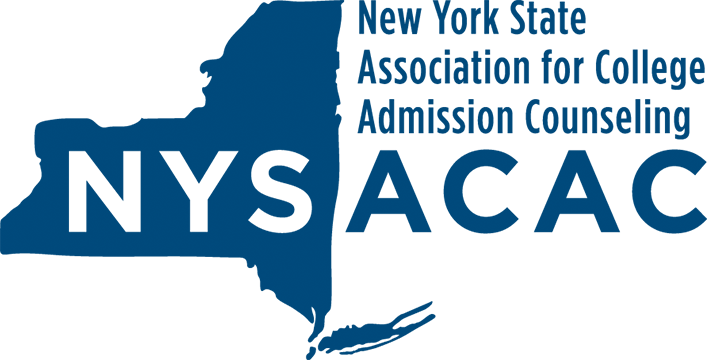

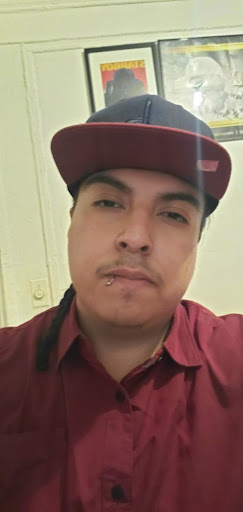 This month's Scholarship Spotlight is on Cristian Meza, a freshman at NYC College of Technology. Cristian was nominated by Robin Blanc from Opportunities for a Better Tomorrow. Cristian was selected by the committee due to his strength and perseverance after overcoming many obstacles. With the support he has received at Opportunities for a Better Tomorrow, Cristian applied to college, knowing that his future depended on it. Please read the statement below from Cristian:
This month's Scholarship Spotlight is on Cristian Meza, a freshman at NYC College of Technology. Cristian was nominated by Robin Blanc from Opportunities for a Better Tomorrow. Cristian was selected by the committee due to his strength and perseverance after overcoming many obstacles. With the support he has received at Opportunities for a Better Tomorrow, Cristian applied to college, knowing that his future depended on it. Please read the statement below from Cristian: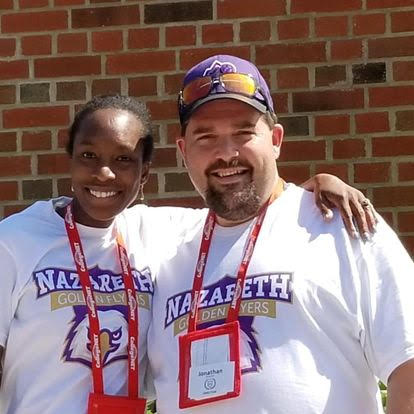 NYSACAC Camp College is a FREE* three-day overnight college admission program that prepares students for the college process. Camp College is geared towards first generation and underserved high school juniors and seniors.
NYSACAC Camp College is a FREE* three-day overnight college admission program that prepares students for the college process. Camp College is geared towards first generation and underserved high school juniors and seniors. 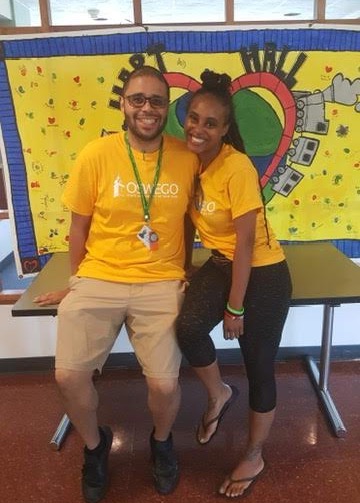
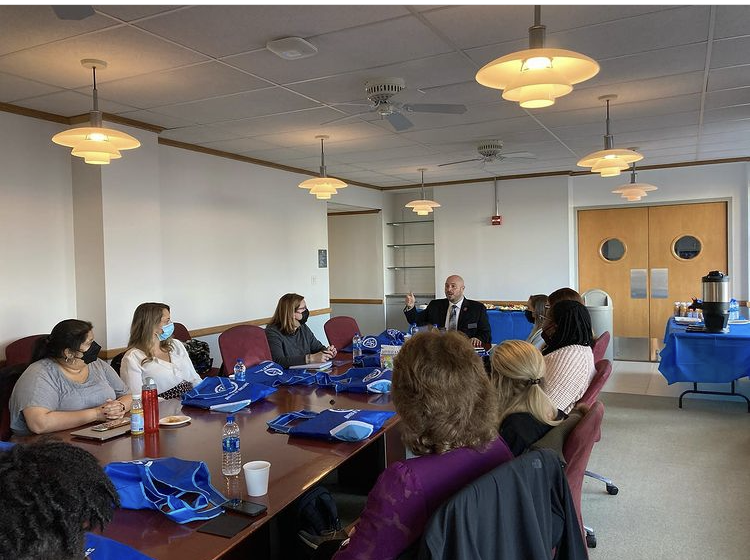
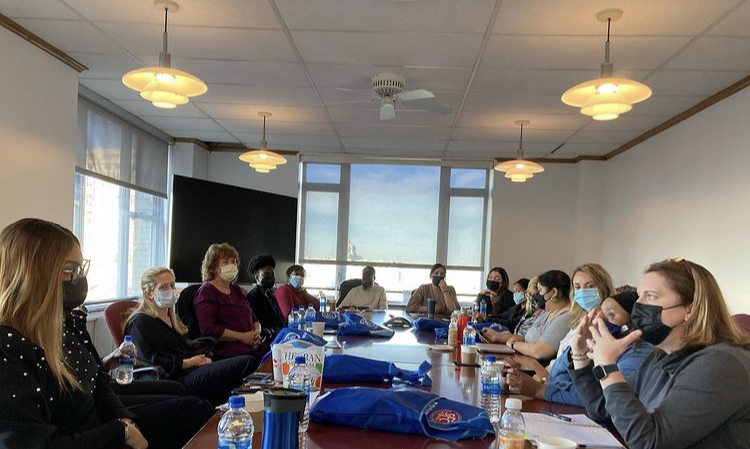 Burnout is when you are so emotionally, physically, and mentally drained, you can no longer work efficiently. Professionals need to be aware of their body’s early warning signs which could manifest as anything, such as constant headaches, strange aches and pains, tiredness, insomnia, volatile emotions, fatigue, irritability, and/or a general feeling of being unwell. When left unmanaged, it can lead to chronic stress which, in more extreme cases, can lead to mental illness diagnosis. A “burnt-out” professional is neither helping themselves or their students. In fact, the “burnt-out” counselor may be doing more harm to their students than they are aware of.
Burnout is when you are so emotionally, physically, and mentally drained, you can no longer work efficiently. Professionals need to be aware of their body’s early warning signs which could manifest as anything, such as constant headaches, strange aches and pains, tiredness, insomnia, volatile emotions, fatigue, irritability, and/or a general feeling of being unwell. When left unmanaged, it can lead to chronic stress which, in more extreme cases, can lead to mental illness diagnosis. A “burnt-out” professional is neither helping themselves or their students. In fact, the “burnt-out” counselor may be doing more harm to their students than they are aware of.
